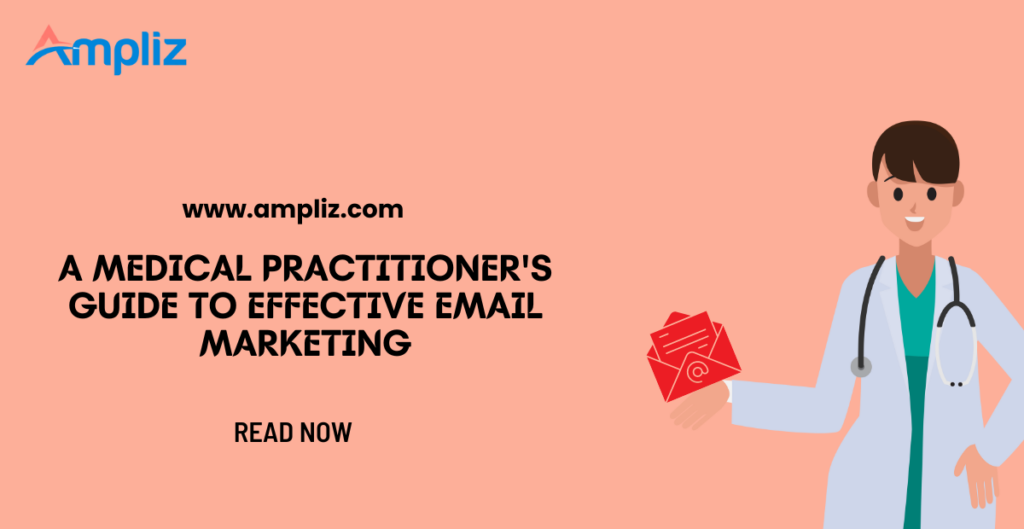If you’re a medical practitioner looking to improve your patient outreach and communication, exploring effective email marketing is essential.
With that in mind, let’s cover some crucial insights on effective strategies, from crafting compelling content to ethical considerations. They should help you build meaningful relationships with your patients through well-executed email campaigns.
Understanding the importance of email marketing for a medical practitioner
Email marketing isn’t usually a top priority for medical practitioners. However, if we consider it closely, its value becomes apparent. This tool can be pivotal in enhancing your patient relationships and building trust.
Moreover, regular emails can inform patients about new services or health updates effectively. Thus, by understanding the potential of email marketing, you’re opening up a channel that could drastically improve your practice’s outreach.
Harnessing subject lines that grab patients’ attention
Creating standout subject lines is an integral part of successful email marketing for any medical practitioner. Here are a few simple tips to help you achieve this:
- Be concise, but powerful: Lengthy subject lines often get cut off or overlooked. Make your point succinctly.
- Personalize when possible: Use the patient’s name if appropriate and relevant.
- Communicate value: Make it clear why opening the email will benefit them. For example, explaining how preventative care can save health issues later on.
- Instill urgency without seeming pushy: e.g., “Last chance for flu shots.”
Remember that meaningful subject lines, personalized appropriately and constructed thoughtfully, encourage higher open rates amongst patients.
Designing engaging content: The key to successful engagement
Crafting engaging content is vital in effective email marketing. Follow these guidelines for better patient engagement:
- Use a conversational tone: Ensure your emails are easy to read and personable as if speaking directly to the patient.
- Mix up your messages: Share tips about health, news related to your field, and updates about your practice.
- Include clear calls-to-action (CTAs): CTAs direct what steps you want patients to take next – book an appointment, read a blog post, or respond to a survey.
- Keep it visually appealing: Break text into short paragraphs with spaces between sections. Use images sparingly and purposefully.
In sum, good content invites interaction from patients. So keep it personal, interesting, and action-centric.
Mastering the art of personalization in patient emails
Personalizing your emails can significantly improve patient engagement if you’re a medical practitioner. Here are valuable tips for effective personalization:
- Use patients’ names: It may seem small, but addressing each patient by name is a powerful personalization tool.
- Segment your audience: This allows you to tailor content to specific groups based on their needs or interests.
- Send relevant information: If a patient has recently had surgery, provide post-op care tips or recovery advice.
Potent email marketing goes beyond “Dear [Name]”. It’s about delivering pertinent and helpful content to every individual recipient. By truly personalizing your emails, you create higher value for your patients.
If you are struggling with this aspect, consider working with a provider that handles email marketing for the medical industry. The right experts can quickly transform and personalize your campaigns.
Maximizing your practice’s reach with automated campaigns
Utilizing automated campaigns can be game-changing for your practice. A few automation possibilities to consider are:
- Welcome emails: Send these immediately after a patient signs up or visits for the first time.
- Reminders: Set reminders for regular check-ups or follow-up appointments.
- Health awareness months: Tailor content around global health initiatives, such as breast cancer or mental health awareness month.
Automation doesn’t just save you precious time. It also ensures patients get informed and relevant communication no matter how busy they might be. So, embrace this tool to maximize your reach and simplify your marketing efforts. Just make sure it doesn’t come at the expense of user experience.
Tracking success: Analyzing your email marketing metrics
Understanding email metrics is vital to evaluate success and improve future campaigns. Focus on these key measurements:
- Open rate: If it’s low, reconsider the subject lines or the timing of emails.
- Click-through rate (CTR): This shows how many recipients are interacting with your content or following calls to action.
- Unsubscribe rate: A sudden increase could signal irrelevant or too frequent emails.
These numbers give you an insight into what drives patient engagement. So keep track of them regularly and adjust your strategy accordingly for more successful campaigns. Also consider the timing of your campaign, and how this influences the metrics mentioned.
Adapting email content based on patient feedback
Patient feedback is invaluable in refining your effective email marketing. Here’s how to utilize it:
- Surveys and questionnaires: Use these tools regularly to gauge patient interests, needs, or frustrations.
- Respond quickly to comments or complaints: This shows you are receptive and care about their opinions.
- Apply findings promptly: Implement changes as per patient suggestions wherever possible and relevant.
Listening closely means you can adapt your content to truly resonate with your patients. As a medical practitioner, the ultimate goal is better healthcare. Enhanced engagement is just a step towards achieving this mission.
Meeting legal and ethical standards in healthcare email marketing
Adhering to legal guidelines and ethical standards is paramount. Follow these best practices:
- Respect privacy laws: Obtain consent before adding patients to your email list, as per the GDPR or HIPAA.
- Ensure data security: Safeguard sensitive patient information following cybersecurity norms.
- Be transparent: Provide clear options for unsubscribing or changing personal details stored by you.
- Avoid medical advice via emails: This can lead to misunderstandings. Use emails only for general health and practice alerts.
Effective email marketing must reflect your commitment to safe, responsible healthcare provision. By doing so, you not only comply with legislation but also fortify trustful relationships with your patients.
Image Source: Pexels
The bottom line
In essence, effective email marketing is a nuanced blend of impactful content, personalization, and legality in healthcare practice. By fine-tuning these aspects, medical practitioners can transform their patient relationships and enhance their outreach. Start implementing these strategies today to see the benefits for your practice tomorrow.



